12 Best Fruits With Electrolytes (Nutritionist Recommended)
Author:
Unlock your full potential by engaging with our experts and community! Have questions about your fitness journey or looking for expert advice on weightlifting techniques? Don’t hesitate — leave a comment below and Jacek Szymanowski will provide a personalized answer and insights to help you reach your goals.
Torokhtiy is reader-supported. Some links are affiliate links, and we may earn a commission at no extra cost to you. See our disclosure page for details.
We know that sports drinks are a good way to replenish lost electrolytes when exercising. But, what happens if you are looking for a natural approach to replenish your electrolytes? Are fruits with electrolytes a good option? Or is it better to keep adding sports drinks?
Here, we’ll answer your most common questions, such as: do lemons have electrolytes? Do bananas have electrolytes? Or, do apples have electrolytes?
We’ll review all the fruits with the most electrolytes. Also, we will detail the benefits of adding electrolytes to your routine and what key nutrients you need to consider when looking for ways to replenish your electrolytes.
All fruits contain electrolytes. Some fruits with electrolytes include bananas, prunes, fortified orange juice, and guavas. Each fruit is high in at least one electrolyte, making them a great option to include in case you want to replenish your electrolytes naturally.
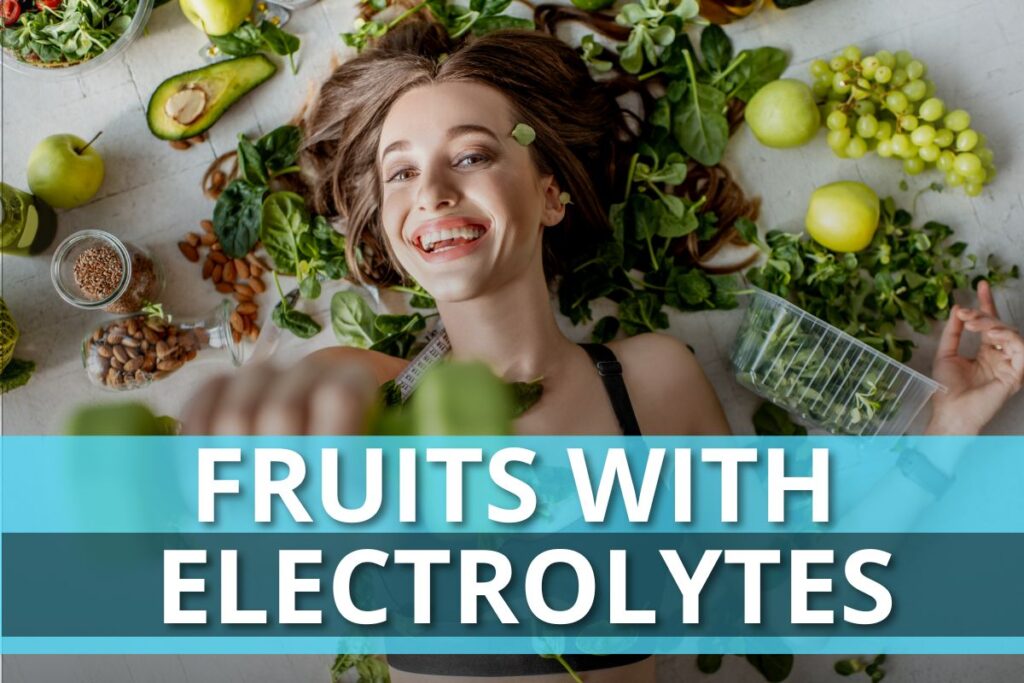
Fluid Needs vs. Fluids With Electrolytes Needs
Before we talk about which fruits are high in electrolytes, it’s important to understand your fluid and electrolyte needs.
1. Fluid Needs
Water plays a crucial role in the body. While people are roughly 60% water on average, this varies depending on age, weight, sex, and body composition. Understanding your fluid needs can be rather complex since there are many variables to consider, such as weather, sweat rate, and altitude.
However, a general rule of thumb is to consume at least half your body weight (pounds) in ounces of water. For example, if you weigh 200 lbs, you should strive for 100 ounces of water. Or, you can multiply your body weight in kilograms by 30 to get the total milliliters of water. So, if you weigh 70 kg, you should strive for 2,100 mL.
Now, remember that the previous amount of water might vary, so when possible, talk to a health professional to get the recommended water intake based on your needs.
Also, the previous recommendation doesn’t consider exercise. According to research, not many people consider how much they lose when exercising, which can put you at risk for possible dehydration.
One simple way to determine how much you lose when exercising is to weigh yourself before and after exercising. Log in how much water you drink during the session, and subtract the initial weight from the final weight. This can give you an idea of how much water you are losing per session.
You can then strive to replenish the lost water from exercise to stay hydrated. This usually represents 15-20 ounces of water per session.
Not replenishing your fluids needs, even a 2% decrease, can cause problems in aerobic performance, endurance, and recovery. So make sure you are taking the adequate fluids to replenish properly and maintain performance.
2. Fluids With Electrolytes
Electrolytes are minerals that help regulate hydration, control muscle contractions, and conduct nerve impulses.
According to the National Library of Medicine (NIH), the main electrolytes you should replenish are sodium, magnesium, calcium, chloride, potassium, and phosphorus. However, sodium is the most important electrolyte to replenish for strenuous and prolonged exercises.
So, how many electrolytes do you need per day?
- Potassium: 3,000 to 3,400 for men and 2,300 to 2,600 for women
- Calcium: 1,000 to 1,200 for men and women
- Magnesium: 400 mg for men and 310 mg for women
- Sodium: 2,400 mg for men and women
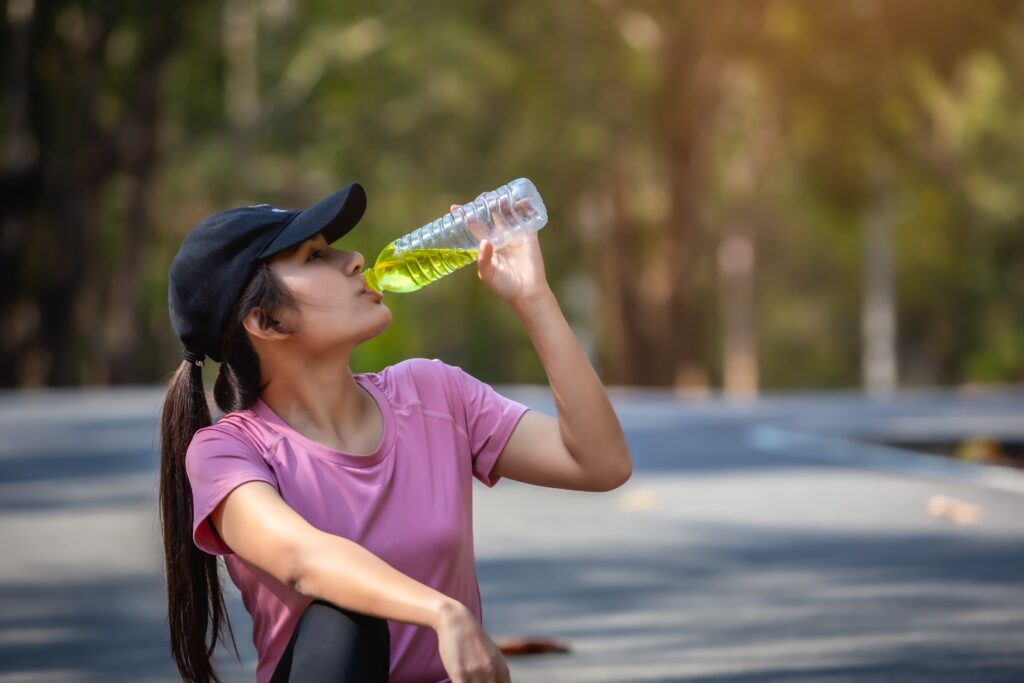
Are There Any Fruits With Electrolytes?
So, what fruits have electrolytes? I know you probably have a lot of questions right now when it comes to electrolytes and food. Does watermelon have electrolytes? Do oranges have electrolytes? Do blueberries have electrolytes?
Don’t panic. All fruits have electrolytes, but some more than others!
Here are 12 fruits that have electrolytes.
Remember that sodium is one of the most important electrolytes to replenish. However, fruits are not a good source of sodium. You might want to replenish it with other foods high in sodium.
1. Potassium
• Apricots
Apricots are one of the foods with the highest potassium content. Half a cup of dried apricots provides 755 mg of potassium, representing 30% of the recommended potassium intake. In addition, they are high in antioxidants, which can help reduce inflammation and promote good recovery.
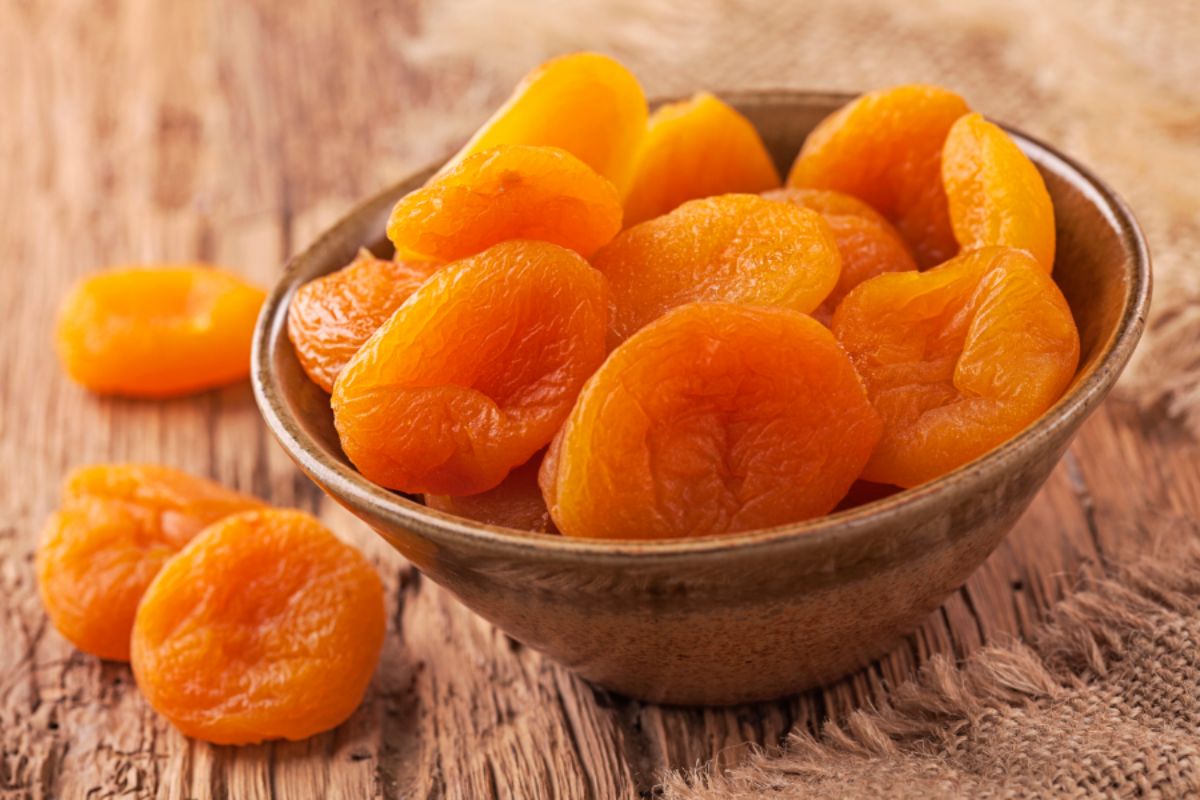
• Prunes
Half a cup of dried prunes has 700 mg of potassium (27% of the daily recommended intake). They also have around 25% of the recommended fiber intake, making it a good option to improve gut health and promote good bowel movements.
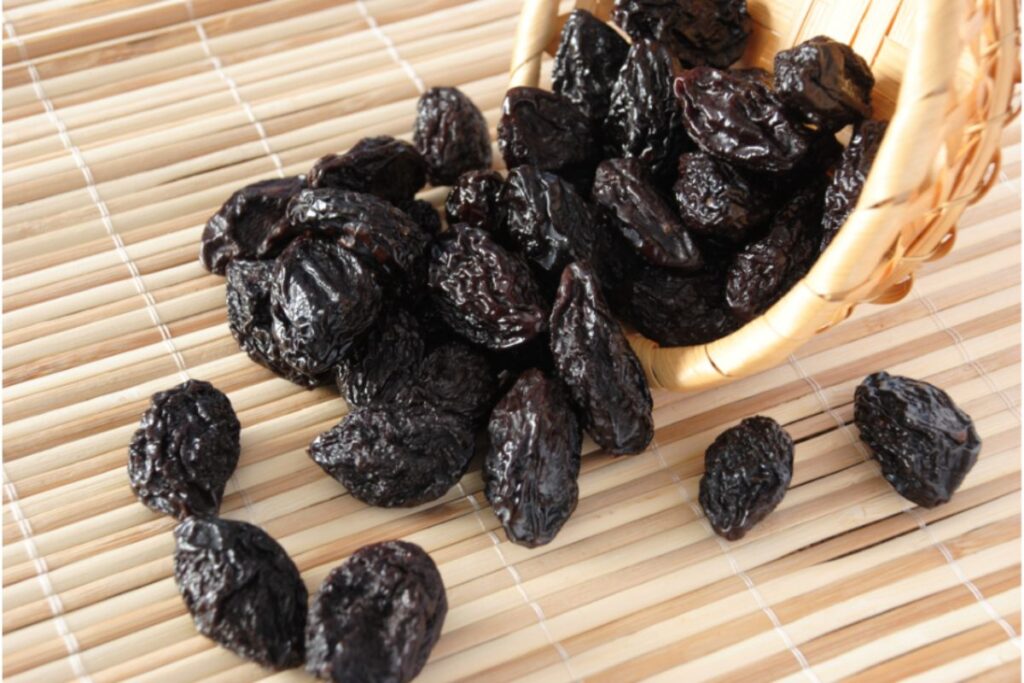
• Raisins
Half a cup of raisins has 600 mg of potassium (23% of the daily recommended value). Raisins can be a good way to help boost energy levels due to their high carb content. However, ensure you eat them in moderation because they are easy to overeat.
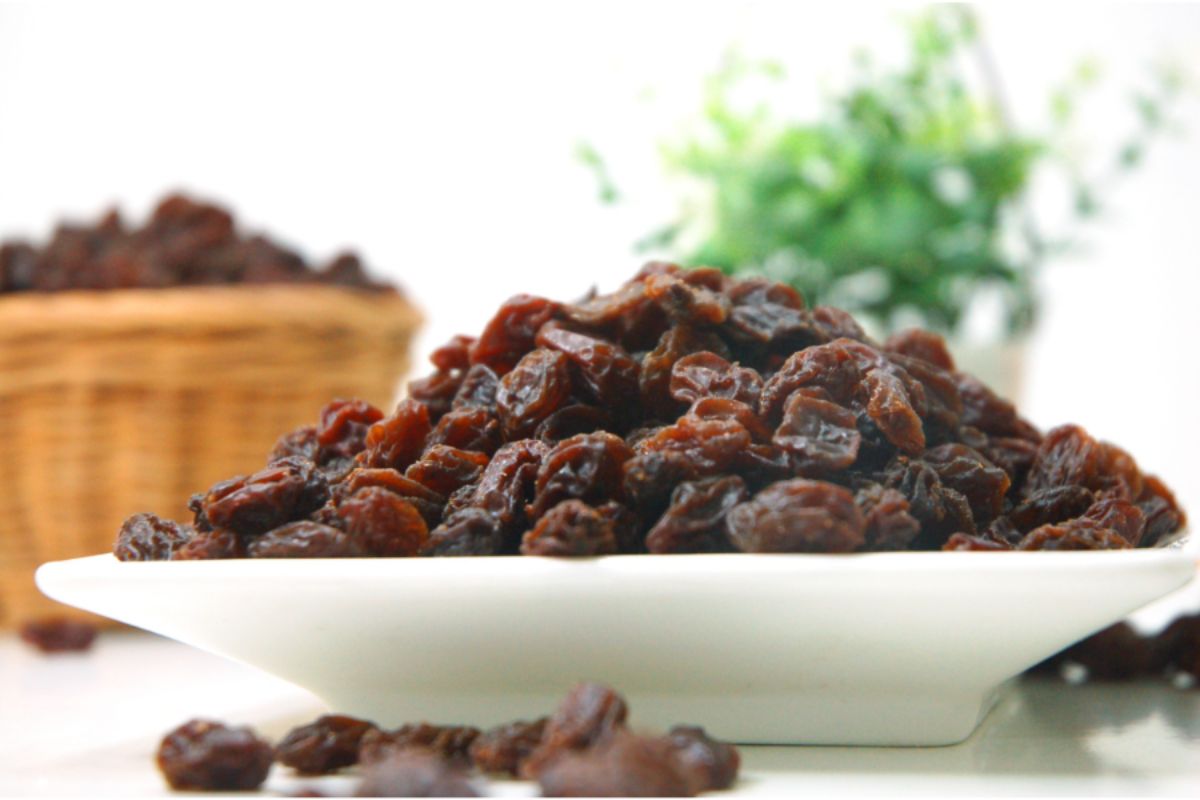
• Bananas
Bananas are high in potassium, but they are not the highest. One medium banana has 422 mg (16% of the daily recommended intake).
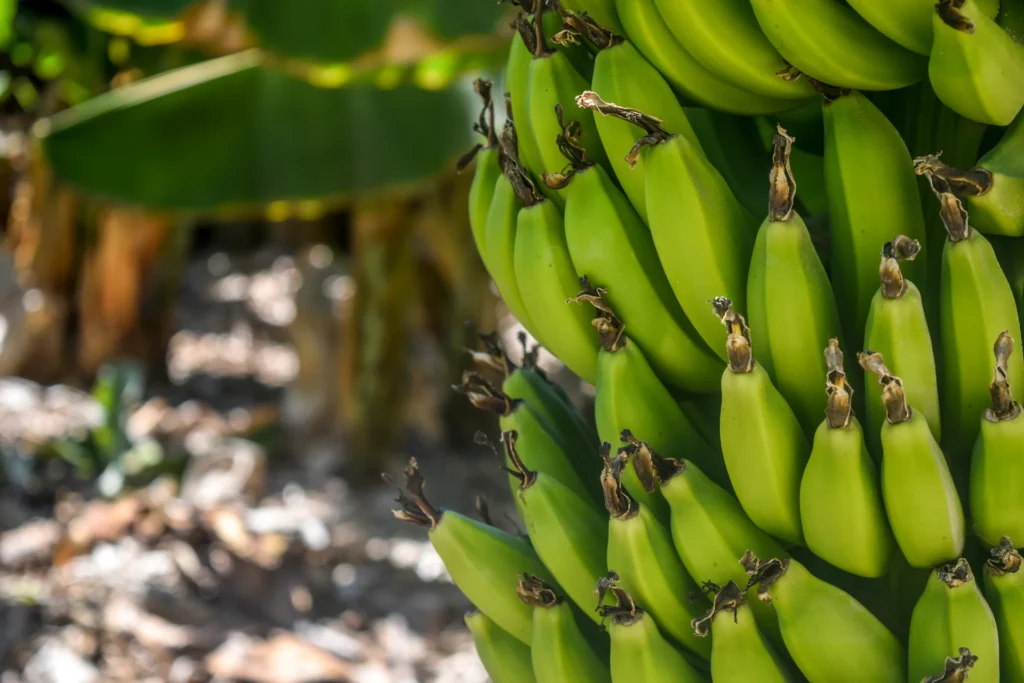
• Jackfruit
Half a cup of jackfruit has 338 mg of potassium (13% of the daily recommended value). Thanks to its similar texture to meat, vegetarians often use this fruit to create vegan-style recipes.
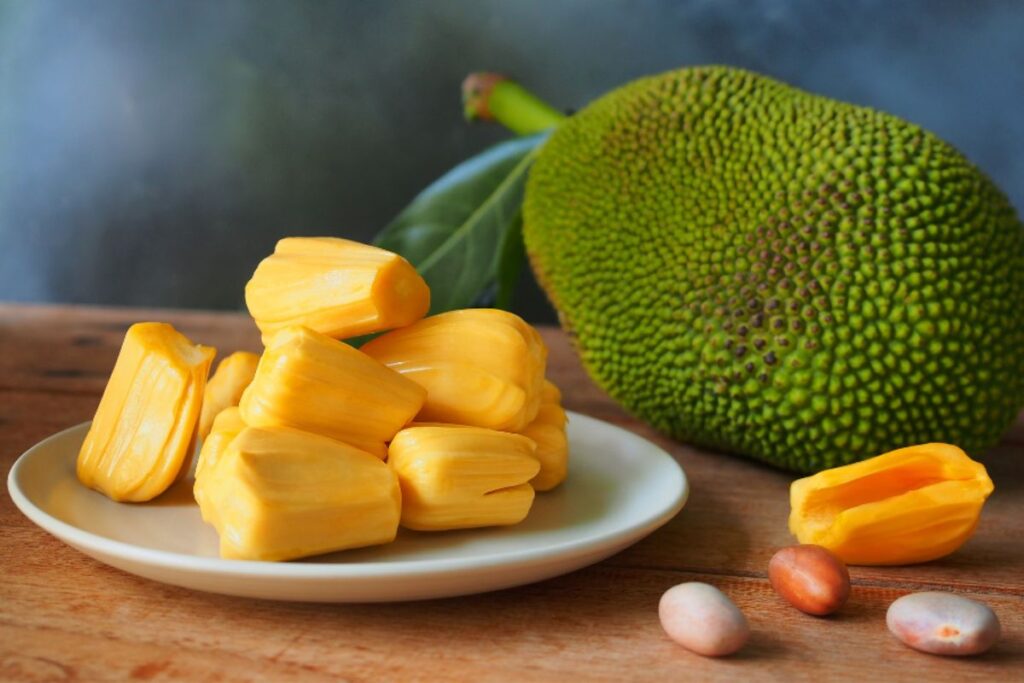
2. Calcium
Keep in mind that most fruits are not very high in calcium, meaning they won’t be a good source. If you want to increase your calcium intake, you might want to add options like yogurt, tofu, and sardines.
• Fortified Orange Juice
One cup of fortified orange juice has 349 mg of calcium (27% of the daily recommended value). Besides helping replenish calcium, it can also help you reach your water intake.
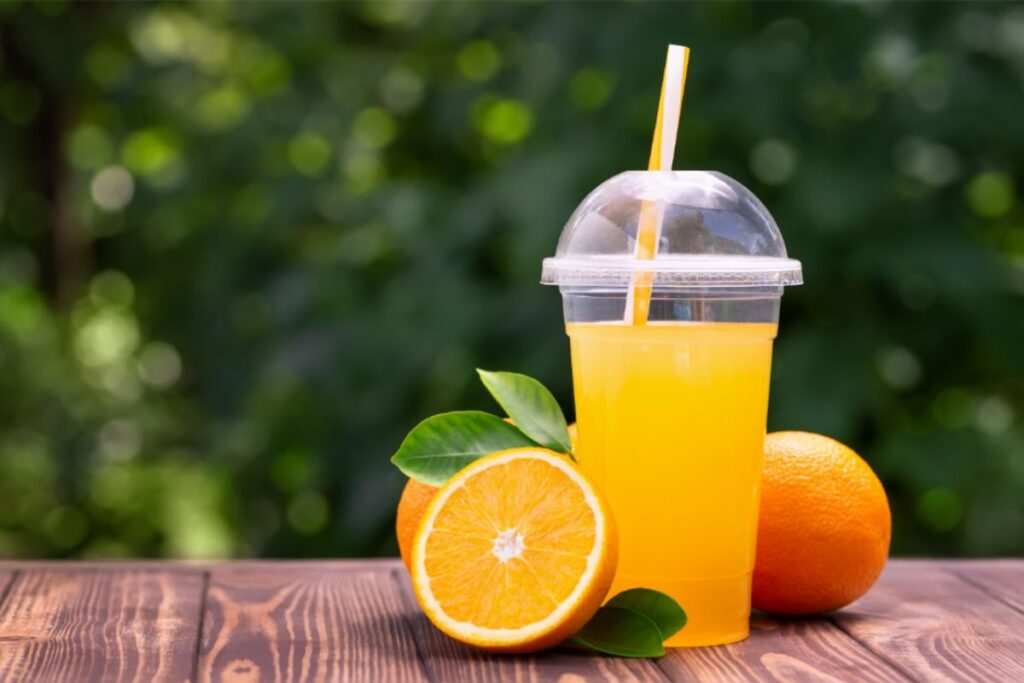
• Kiwi
One cup of kiwifruit contains 61 mg of calcium (5% of the daily recommended intake). In addition, thanks to their high vitamin C content, they can help promote good post-workout recovery.
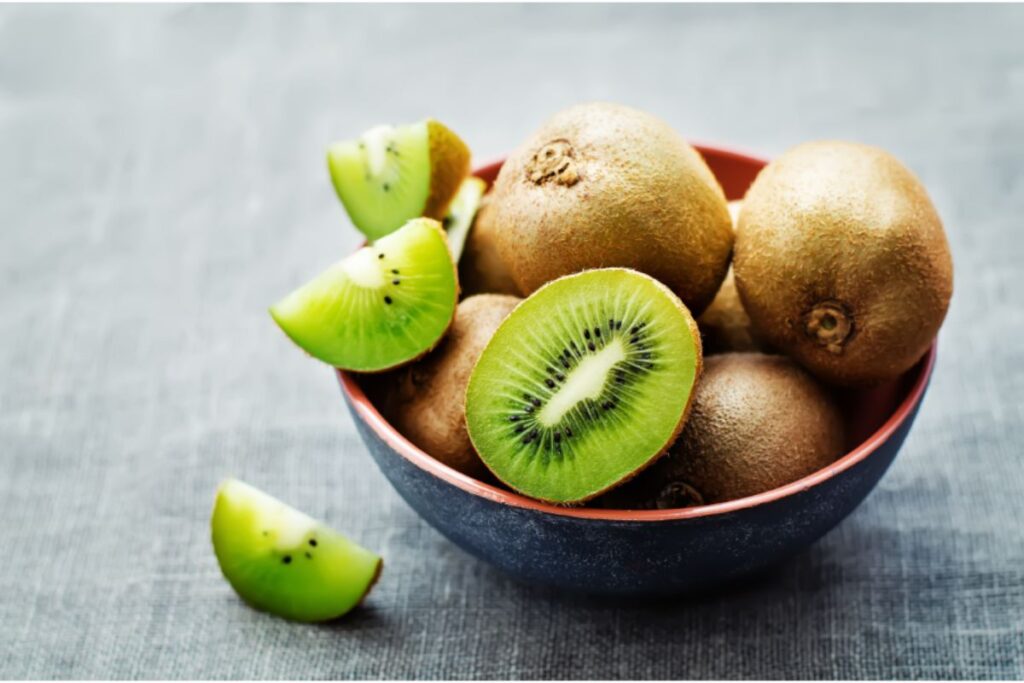
• Mulberries
One cup of mulberries has 55 mg of calcium (4% of the daily recommended intake). Also, they are high in vitamin C, which can help reduce inflammation and strengthen immune function.
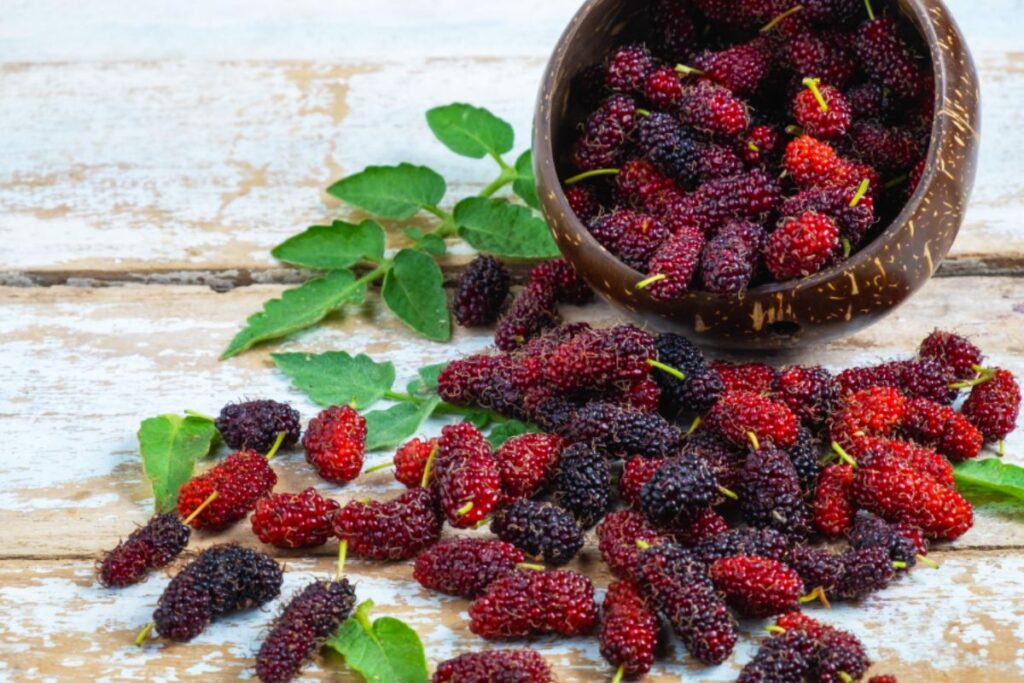
3. Magnesium
• Figs
One cup of dried figs has 101 mg of magnesium (24% of the daily recommended intake). They are also high in fiber, helping promote good bowel movements and supplying a more stable energy release.
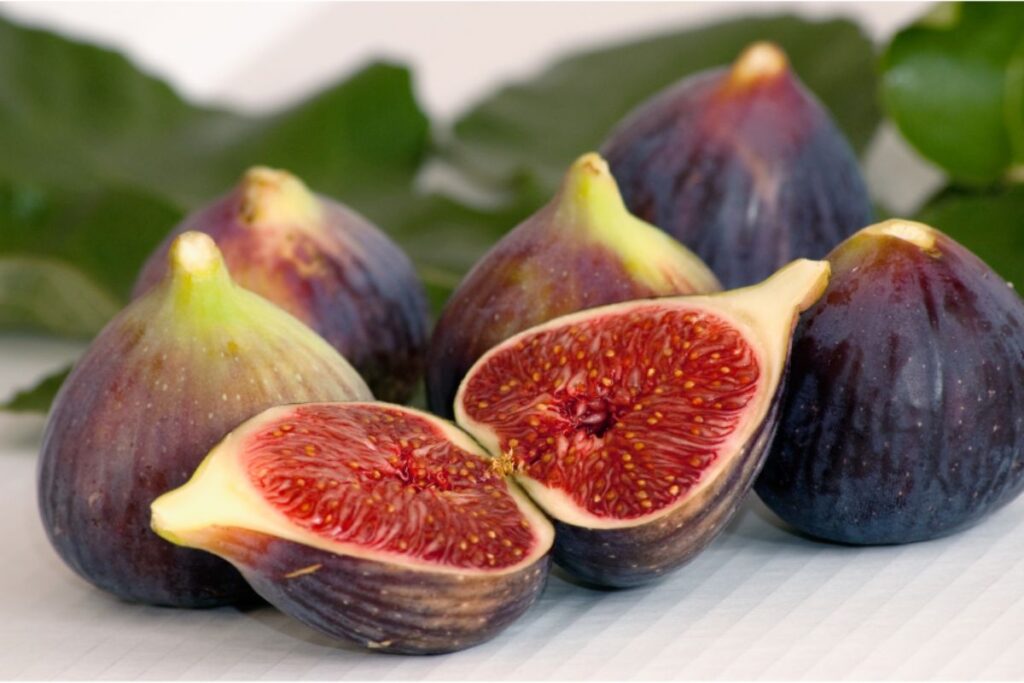
• Guavas
One cup of guavas has 36 mg of magnesium (9% of the daily recommended intake). They are a tangy fruit high in vitamin C content.
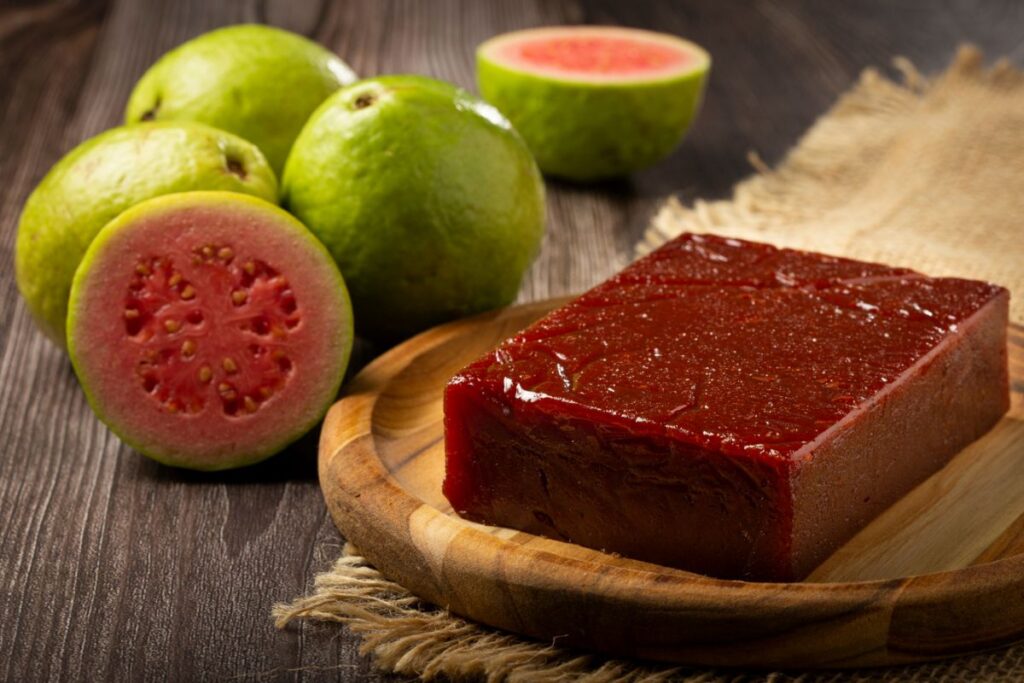
Do You Need Electrolytes At All?
While everyone needs electrolytes, not everyone needs to add a sports drink (or supplement) to replenish their electrolytes. The intensity, duration, and weather will determine if you need to add one.
1. Are You An Average Gym-Goer?
In most cases, if you are an average gym-goer who works out for less than 2 hours, you don’t need to intentionally replenish your electrolytes with supplements. Adding high-electrolyte foods will do just fine to help promote good recovery and muscle function.
2. Do You Exercise Intensely For More Than 2 Hours?
Now, if you exercise for more than 2 hours, you are likely in need of an electrolyte drink. Here, the risk of losing electrolytes through your workouts is higher. However, it’s still better to consult a professional to determine whether you require electrolyte replacement.
For those working out for more than 4 hours, you need to replenish electrolytes and other nutrients.
3. Is The Weather Hot?
Finally, if the weather is hot or humid, this means you are probably sweating more than usual. No matter how long the workout lasts, if you are sweating more than usual, you will more likely need to replenish electrolytes.
Our Recommended Electrolyte Powder: Hydrate
If you are in need of an electrolyte supplement, we recommend Hydrate by Transparent Labs. The formula contains a good balance of electrolytes (sodium, potassium, calcium, and magnesium).
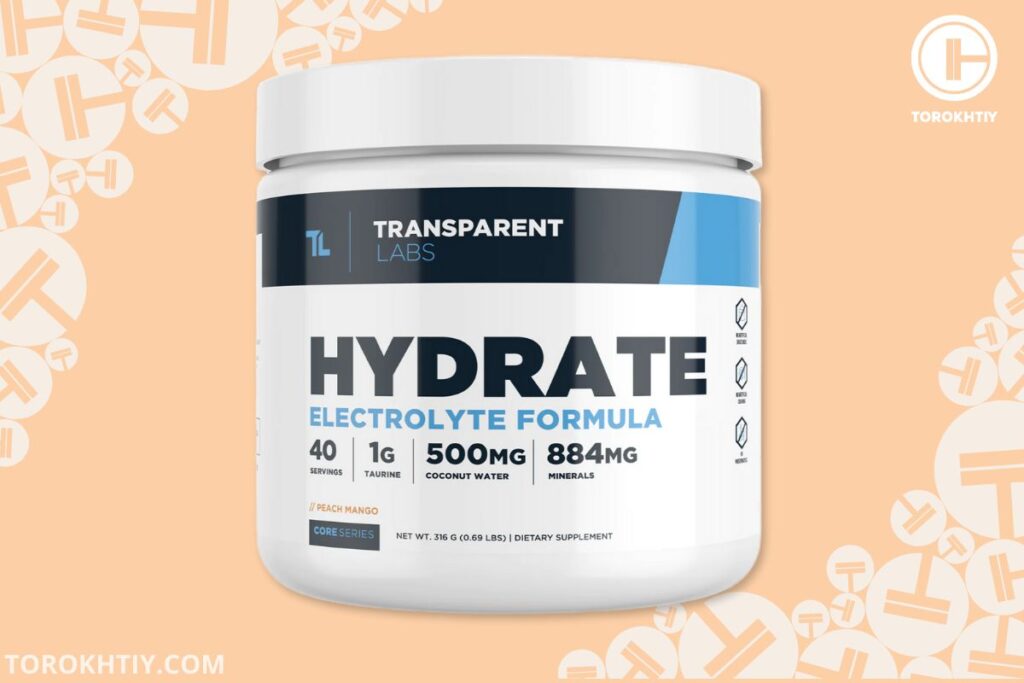
Hydrate also comes in two delicious flavors to choose from and the supplement has a fully transparent ingredients list. Finally, the supplement has an Informed Choice certification, guaranteeing its safety and purity.
FAQ
What Foods Are High in Electrolytes?
Options like prunes, apricots, bananas, coconut water, and watermelon are foods with a high electrolyte content.
What Fruits and Veggies Have Electrolytes?
All fruits and vegetables have some electrolytes. Some have more than others, and different ratios of the various electrolytes. Some good choices are spinach, kale, avocados, prunes, bananas, and watermelons.
What Fruit Has the Highest Electrolytes?
It all depends on which electrolyte you are talking about. One food that is very high in potassium is apricots. For calcium, it’s fortified orange juice, and magnesium figs.
Which Fruit is Best For Dehydration?
Watermelon is one of the best options for dehydration since it has a high water content (92%). Another great option is the water you obtain from coconuts (coconut water) since it’s high in electrolytes and can help replenish your fluids.
Conclusion
Essential electrolytes, such as sodium, potassium, calcium, and magnesium, are worth replenishing when workouts last longer than 2 hours or if the weather is too hot or humid (making you sweat more).
For those who need to replenish their electrolytes, Hydrate by Transparent Labs is a good option that offers two delicious flavors and a good balance between all the essential nutrients you need to replenish.
However, when the workouts are shorter (less than 2 hours), you can replenish your electrolytes through natural foods, such as high-electrolyte fruits (bananas, figs, raisins, and guavas).
Which is your favorite high-electrolyte food? Write about it in the comments!
Also read:
- Foods With Electrolytes
- Best Unflavored Electrolyte Powder
- Does Gatorade Have Electrolytes
- How Much Electrolytes Is Too Much
- Kaged Hydra Charge Review
- Homemade Electrolyte Drink
References:
- Convertino VA and others, ‘ACSM Position Stand: Exercise and Fluid Replacement’ (1996) 28 Medicine & Science in Sports & Exercise 1
- Dietary Guidelines for Americans, ‘Dietary Guidelines for Americans, 2020-2025 and Online Materials | Dietary Guidelines for Americans’ (www.dietaryguidelines.gov2020) <https://www.dietaryguidelines.gov/resources/2020-2025-dietary-guidelines-online-materials>
- Judge LW and others, ‘Hydration to Maximize Performance and Recovery: Knowledge, Attitudes, and Behaviors among Collegiate Track and Field Throwers’ (2021) 79 Journal of Human Kinetics 111 <https://www.ncbi.nlm.nih.gov/pmc/articles/PMC8336541/>
- National Institutes of Health, ‘Office of Dietary Supplements – Magnesium’ (National Institutes of Health2016) <https://ods.od.nih.gov/factsheets/Magnesium-HealthProfessional/>
- ——, ‘Office of Dietary Supplements – Potassium’ (Nih.gov 2 June 2022) <https://ods.od.nih.gov/factsheets/Potassium-HealthProfessional/>
- National Institutes of Health, ‘Office of Dietary Supplements – Calcium’ (Nih.gov2020) <https://ods.od.nih.gov/factsheets/Calcium-HealthProfessional/>
- Shrimanker I and Bhattarai S, ‘Electrolytes’ (Nih.gov2019) <https://www.ncbi.nlm.nih.gov/books/NBK541123/>
Why Trust Us?
With over 20 years in Olympic weightlifting, strength training, nutrition coaching, and general fitness our team does its best to provide the audience with ultimate support and meet the needs and requirements of advanced athletes and professional lifters, as well as people who strive to open new opportunities and develop their physical capabilities with us.
By trusting the recommendations of our certified experts in coaching, nutrition, and sports training programming, as well as scientific consultants, and physiotherapists, we provide you with thorough, well-considered, and scientifically proven content. All the information given in the articles concerning workout programming, separate exercises, and athletic performance, in general, is based on verified data.
The product testing process is described in more detail here.
Author: Jacek Szymanowski
Certified Nutritionist,
M.Sc.Eng. Biotechnology
Performance Architect,
Strength and Conditioning Specialist
With over 30 years of fighting experience, specialization in nutrition coaching for athletes, and expertise in metabolic health and dietary strategies, Jacek offers a comprehensive approach to optimizing your performance and well-being. Backed by a Master of Science degree in Biotechnology, Jacek remains at the forefront of scientific advancements, ensuring that his coaching is always evidence-based and up-to-date.



Still have questions after reading our article? Unlock your full potential by engaging with our experts and community! Don’t hesitate — leave a comment below and Jacek Szymanowski will provide a personalized answer and insights to help you reach your goals.